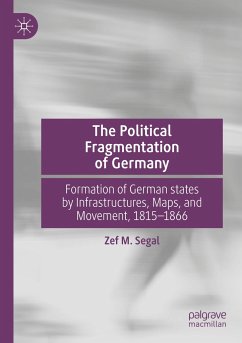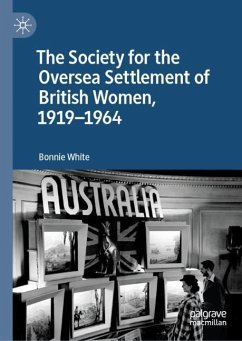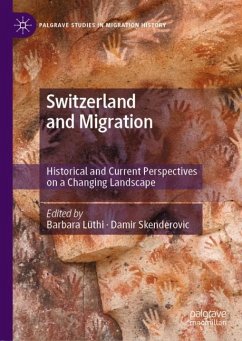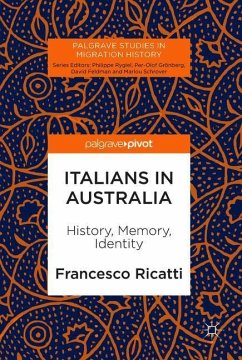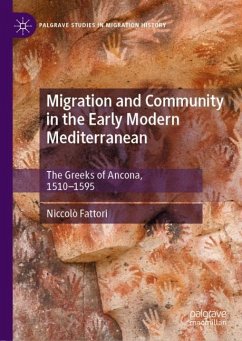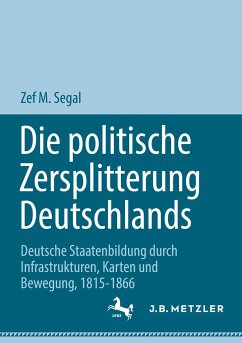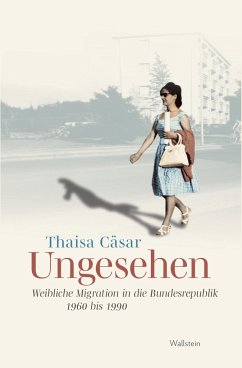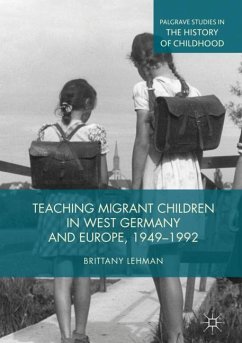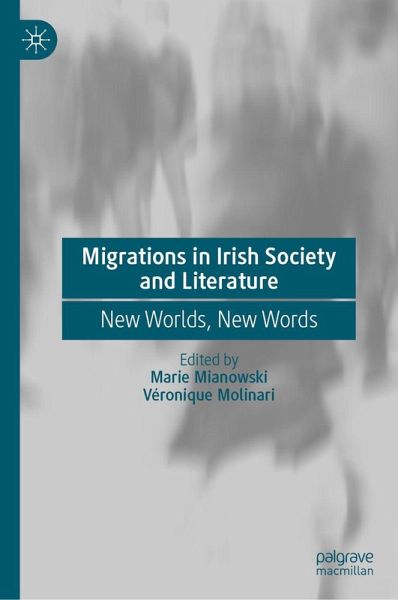
Migrations in Irish Society and Literature
New Worlds, New Words
Herausgegeben: Mianowski, Marie; Molinari, Véronique
Versandkostenfrei!
Erscheint vorauss. 9. Februar 2026
106,99 €
inkl. MwSt.

PAYBACK Punkte
53 °P sammeln!
This book addresses the issue of migration to and from Ireland since the 17th-18th century and examines the dynamics of emigration and immigration down to the present day. It is distinctive in its pluri-disciplinary approach of migrating issues in Ireland as well as the way it confronts individual and collective dynamics in the context of migration. It offers a comprehensive and englobing understanding of key issues of migration in Ireland today and their legal, social and linguistic impacts, while also focusing on the representations of the migrating experience in literature, be it in poetry ...
This book addresses the issue of migration to and from Ireland since the 17th-18th century and examines the dynamics of emigration and immigration down to the present day. It is distinctive in its pluri-disciplinary approach of migrating issues in Ireland as well as the way it confronts individual and collective dynamics in the context of migration. It offers a comprehensive and englobing understanding of key issues of migration in Ireland today and their legal, social and linguistic impacts, while also focusing on the representations of the migrating experience in literature, be it in poetry or in fiction.
In doing so it also aims at reassessing issues of home, place-making and belonging. The book goes beyond the study of immigration and emigration (from a historical or economic approach) but rather demonstrates the complexity of migrating trajectories, whether individual or collective, and how those migrating stories are inscribed within national and supra-national dynamics. The study of the words used to narrate those experiences offers insight into the plurality of migrating experiences, hence the place devoted in this book to literary representations.
In doing so it also aims at reassessing issues of home, place-making and belonging. The book goes beyond the study of immigration and emigration (from a historical or economic approach) but rather demonstrates the complexity of migrating trajectories, whether individual or collective, and how those migrating stories are inscribed within national and supra-national dynamics. The study of the words used to narrate those experiences offers insight into the plurality of migrating experiences, hence the place devoted in this book to literary representations.



